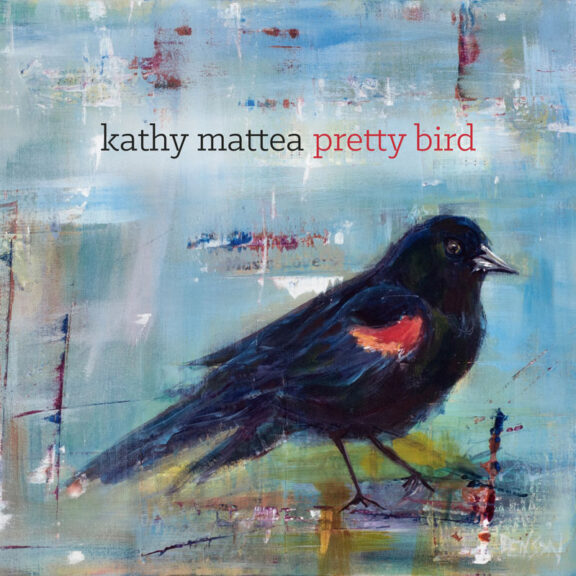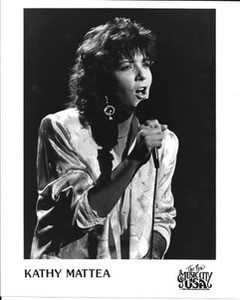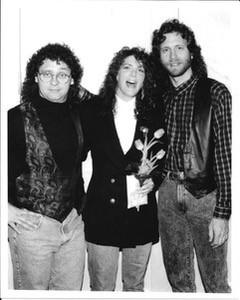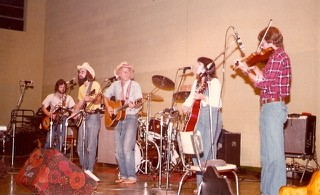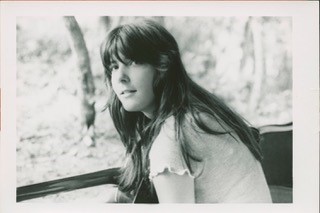Hailed as one of Nashville’s finest song interpreters, Kathy Mattea has had great success in country, bluegrass, and folk music. She has amassed Grammys, CMAs, #1 country singles, gold, and platinum-selling albums, but her performance dreams nearly ended when in her early 50s her voice started to change. In our Squeeze the Day podcast, Mattea shares how perseverance, faith, and the power of music led to unexpected new opportunities in this second chapter of life.
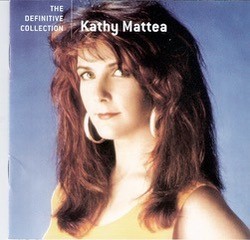
The Washington Post hailed you as “one of Nashville’s finest song interpreters” and People Magazine described you as “warm, strong, smart, and generally splendid.” How did those words impact you?
There are so many stages to this. … When I came up, this technology was expensive to go record. … Will I get a record deal? … Will the timing be right? … And, so, I think probably the best way for me to answer that is to say it was validating to think that the music that was giving me juice was landing that way with other people, too.
When you were in your 50s, your voice started to change. Tell us about that time in your life.
It happened gradually kind of — and I would be on stage — and I would go for some note that I’d been singing for 30 years in some song and then it wouldn’t come out. And, I’d think, oh, I’ll think about that point in that song tomorrow night … I’ll really lean into it. I’ll pay attention. And it was the same thing that happened … maybe the next night it would be there. I didn’t know what the difference was. There was a point where I couldn’t run away from it or sweep it under the rug anymore. It was like, I’m going to have to turn around and look straight at this. And just for context, I had a voice teacher for 30 years that I found when I was 19. So, I was a person who took good care of myself, exercised, ate well — all the things. So, it was scary … devastating. But there was a moment when I was at an event in the ‘90s and I wound up at a star-studded party and I felt way out of my league. So, I went to a corner to just sort of observe from afar. And when I got there, Tony Bennett was standing there …
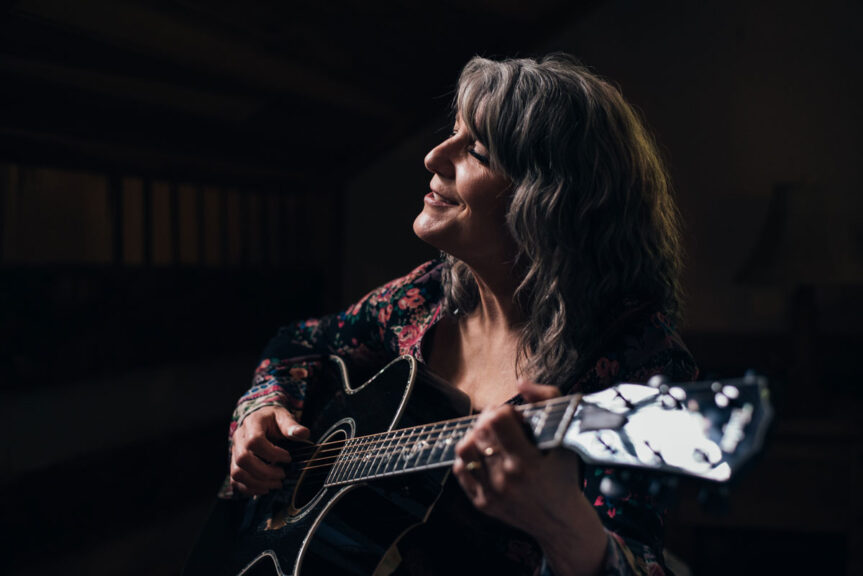
Learn how a casual conversation with Bennett gave Mattea a new perspective and strategy. Throughout the podcast, her storytelling and analogies offer tremendous insight into her life decisions — including what it took to revive her voice and her career. “Pretty Bird,” her latest album, is the result of that hard work. It features an eclectic collection of songs recorded with the help of a vocal coach and her longtime friend Tim O’Brien — whom she heralds as a musical genius.
We also understand more about her commitment to recording the Grammy-nominated “Coal,” after a mining accident in her home state killed twelve miners. Produced by multi-talented singer-songwriter, and musician Marty Stuart, the collection of songs on the album is a tribute to her West Virginia roots, life in coal country, and her grandfathers — both of whom were coal miners. We discover how Mattea sees music as a connector, messenger, and catalyst as she explains how songs can subliminally carry a message and be therapeutic as they were when her mother was battling Alzheimer’s. She treats us to the emotional story behind her huge hit “Where’ve You Been?” Written by Don Henry and Mattea’s husband Jon Vezner, the song has won numerous awards and serves as a life-changing reminder about age-old love. Based on the real-world story of Vezner’s grandparents, the message was so poignant documentarian Ken Burns included it in the highly acclaimed “Country Music” referencing it as one of his top 5 song discoveries while making the documentary.
Tell us about hosting Mountain Stage.
Mountain Stage is an NPR show — a national show that’s carried on between 250 and 300 stations around the country. It started in my hometown in 1983, and 1983 is when I signed my record deal in Nashville. I was the hometown girl, done good. … They’d been looking for someone to hand the reins to and they couldn’t find anyone who was a good fit. … So, they said, “Would you want to take over the show and become the host?” And I was like, oh, I don’t know. I mean, I’m in my sixties now and … I was thinking I’d slow down. But I sat down and I realized it ticked all the boxes of the things I think are important: music, West Virginia culture, hospitality – and not just music, but a more in-depth presentation of artists and artists that aren’t necessarily mainstream. And I thought, “I think I have to do this. It challenges me and it uses my particular skillset in a different way.” So, I said yes. The interesting thing for me about it in my sixties is that for my whole life, my music career has been “about me.” … Now I get to just love on other musicians. And I finally realized that in trying to make this decision, I was like, well, I don’t know. … At the end of the day, it’s about music and love. I mean, why would you say no? And I have young musicians come through and say, “My mom is blowing up my phone right now. Can I take a picture of you? I grew up listening to you on every vacation.“ … I don’t think I would ever have heard those stories had I not said yes to this. And so, I get to see a little reflection that I did put some music in the world that meant something to someone.
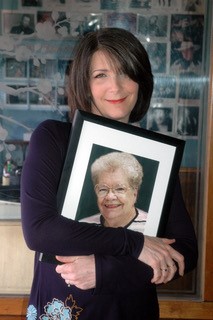
What hobbies do you enjoy?
I love hiking. I love walking in the woods in any kind of situation where there are no cars on the street. … I spend hours and hours and hours doing that at a couple of different places here in Nashville. I love to cook, and that’s just kind of always been an anchoring thing. I think maybe because you can’t cook on the road — there’s no kitchen, you can’t go grocery shopping – and, so, I think it always grounds me when I get home. Those are probably the two biggest things.
Is there one thing in life you wish you could do over?
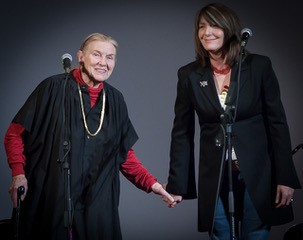
I mean, I think I could make a list, but every mistake I made gifted my life in its own way. So, I don’t think it’s about not making what you would call a mistake or having regrets. When I talk to the kids from Berklee College of Music — they come to Nashville every year and I spend a couple hours talking to them — I’m like, it’s not the what, it’s the how. … It’s not what happens to you, it’s how you deal with it that makes all the difference…
Mattea’s respect for people, history, and culture shines as she shares stories of life. Her love for public broadcasting (radio and tv —including Nashville Public Television’s “Aging Matters”) speaks volumes as a means of education and advocating for others. In this interview, don’t miss the passion with which she recounts the stories of her humble family roots (the coal mines of West Virginia) or the encouragement and support she received from her parents — especially when she decided to leave behind her strong academic achievements (science and engineering and a 3.8 GPA) to pursue her dreams in Nashville. This podcast offers a refreshing look at following your dreams, embracing aging, and overcoming diversity to beat the odds.

This Squeeze the Day is brought to you by the All of Us Research Program from the National Institutes of Health. Learn how you can help change the future of health by participating in the program.
Visit joinallofus.org to learn more.

